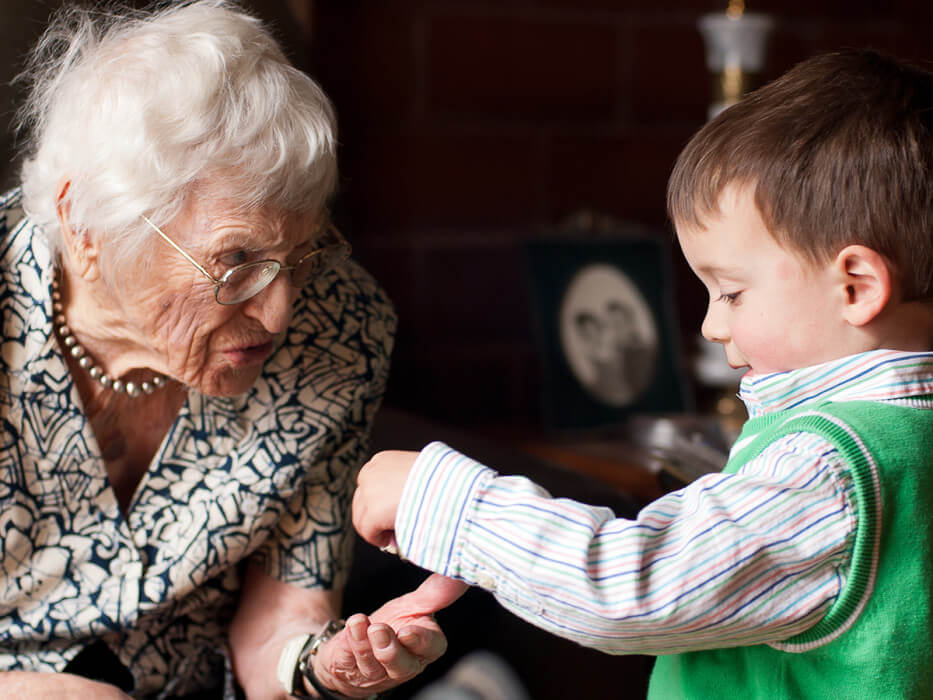Caregiving Basics
In any caregiving situation, there are four basic guidelines
to help ensure that you offer loved ones
the attention and support that they need.

PRAY
Whether before, during or after a caregiving experience, prayer helps ensure that our caregiving reflects the heart of God. In praying before we offer care, we acknowledge our reliance on God’s strength and healing. Prayer in the midst of care directly communicates our support for our friend, reminding them of the comforting power of the Holy Spirit (remember: ask permission to pray with a friend as well as what their prayer requests are). Following up your care with a commitment to continue praying offers additional encouragement and support for the one in need.
LISTEN
Compassionate empathetic listening is a caregiving guideline that is often taken for granted or overlooked, but it’s often the most powerful way you can help a person who is suffering. To listen well you must offer your complete, undistracted attention. You must also commit to hearing more than speaking, resisting the urge to give advice or tell your own story. When you respond, acknowledge the person’s pain and ask clarifying questions. You may also encourage them to name their own feelings, struggles and thoughts.


RESPECT THE GRIEF JOURNEY
Grief is a normal and natural journey by which a person makes a healthy adjustment to any significant loss in his or her life. Anticipating and accepting the emotions a grieving person experiences will let them know you are open and kind, offering room for them to process and feel what is happening for them in healthy ways. Emotions you may observe in a grieving friend include shock, denial, depression, anger, fear and bargaining. As you welcome and listen to these emotions without managing them or offering tips and advice, you help a grieving person journey towards acceptance. Remember: stay present and gracious as you engage the wounded’s grief.
PRESERVE THE DIGNITY
“Human dignity” can be defined as one’s self-worth. Our caregiving should not diminish a person’s feelings of self-worth/self-respect. Whether we care for a co-worker who is going through a divorce, a friend who has cancer, or for a spouse or parent–we need to remember that the person is first of all a child created by God. So engage their thoughts, feelings, struggles and dreams in light of that truth. When you wonder how to respond, ask yourself what you would want done to you in that same situation.

Explore Articles on Caregiving Basics

Getting Out and About
A reader wrote to me, "Instead of lecturing my husband and me to 'get out of the house and do something fun' after I had a miscarriage, some friends sent us dated coupons for a dinner at our...

Encourage Your Children to be Caregivers
“Children are so refreshing, honest, and real. Encourage your children and grandchildren to care for others by suggesting that they draw a picture, write a poem, learn a song, make up a skit, or...

Best Friend
Is it possible to be a “best friend” to all of your friends? It depends on what I mean. If I mean being each of my friends very closest friend, then definitely not. But if I mean being the best...

122+ Ways to Care Well Free E-Book
CLICK HERE TO DOWNLOAD Our friend has cancer. Our neighbor is unemployed. Our parent is elderly. Individuals who need our comfort and care are all around us. The problem, however, arises when our...

What are the early signs of Alzheimers Disease?
Dear Karen,
How do I know if my mom has Alzheimer’s disease? What are some of the early signs of this disease? -Betty
Dear Betty:
Good question, Betty. Many people, including myself, want to know what signs to look for. For wisdom on this subject I went to wonderful resource, Coach Broyles’ Playbook for Alzheimer’s Caregivers. Frank Broyles, is Athletic Director Emeritus for the University of Arkansas Razorbacks. His wife, Barbara, was diagnosed with Alzheimer’s disease. Frank says, “I had many questions and spent a lot of time looking for answers. What I learned is contained in my book, Playbook for Alzheimer’s Caregivers.”
One of the first topics which Coach Broyles deals with in his book is what signs to look for.

What Worries You The Most?
Brian Mansfield is a writer for USA Today and was diagnosed with colon cancer at age 48. Brian chronicles his life with cancer in a series of articles called, “My Semicolon Life.” Brian says that...
